Top 7 Nigeria Culture, Customs and Etiquette
Nigeria is the most populous black country on Earth. It is home to the second largest film industry in the world and is also a hub for fashion, technology and ... read more...creativity in Africa. Nigerians are known for their lively and friendly energy that is expressed through diverse creative expressions. Here is a list of Nigeria Culture, Customs and Etiquette that you should not miss.
-
Omugwo is a traditional Igbo custom for postpartum care provided by the couple's mother. The significance of this practice is that it allows the new mother to ease into her new role by drawing on the mother's experience (husband or wife). During omugwo, it is the mother's (or husband's or wife's) responsibility to guide her through what she needs to eat to help with milk production for the baby's consumption, Swedish massage techniques, and hot water therapy. The grandmother assists the new mother with hot water therapy and sitz baths following childbirth. Hot water therapy entails soaking a cloth in hot water and massaging the new mother's belly with it. If the new mother gave birth vaginally, a Sitz bath is required so that blood clots in her womb can be removed and she can heal properly internally.
The new mother will be given spicy foods such as pepper soup to help to flush out unwanted blood clots in her body and help to boost breast milk production. Pap is also another food option given to the new mother as it helps to boost her breast milk supply. After-birth care, omugwo, is necessary so that the new mother can rest well to regain her strength. The practice of omugwo is helpful although there might be friction between the new mother and the mother of the husband or wife because of conflict in ideas.
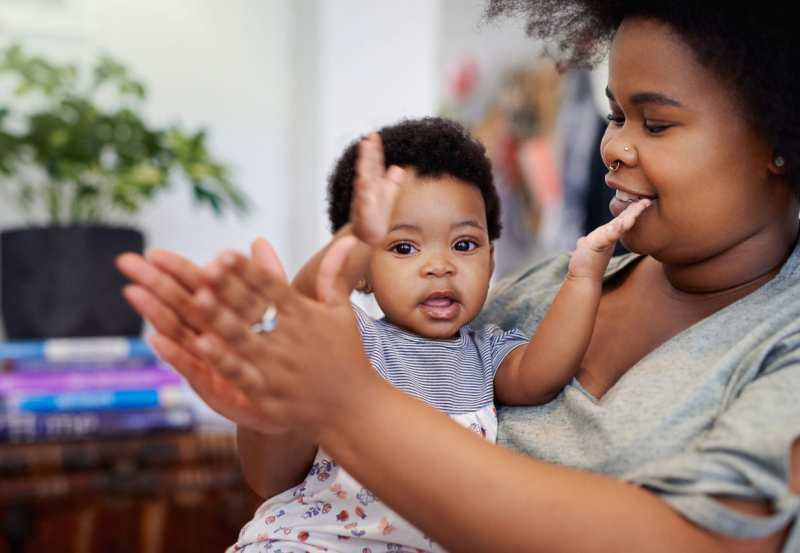
guardian.ng 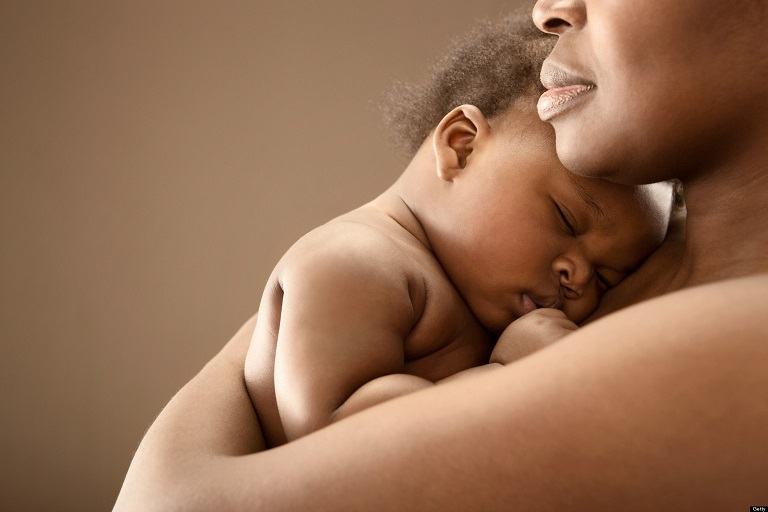
mydiasporakitchen.com -
Men greeting men - Men traditionally shake hands with their right hand. It is customary to keep one's hand on the table for the duration of the conversation. If there is a social difference, the junior man should bow slightly. Instead of bowing, many people in the country's north make a clenched fist in front of their chest, a gesture derived from presenting spears to their Emir. In many parts of the world, the senior person initiates the greeting.
Women greeting other women - Handshakes are common at first meetings. In some parts of the country, good friends and family may exchange a kiss on the cheek and a hug.
Greetings for Men and Women - Physical contact between the sexes is discouraged in the country's north, which is mostly Muslim, so a northern woman is unlikely to shake a man's hand and vice versa. It's best for a man to wait for a woman to extend her hand before offering your own. In the south of the country, greetings are similar to those used by men.
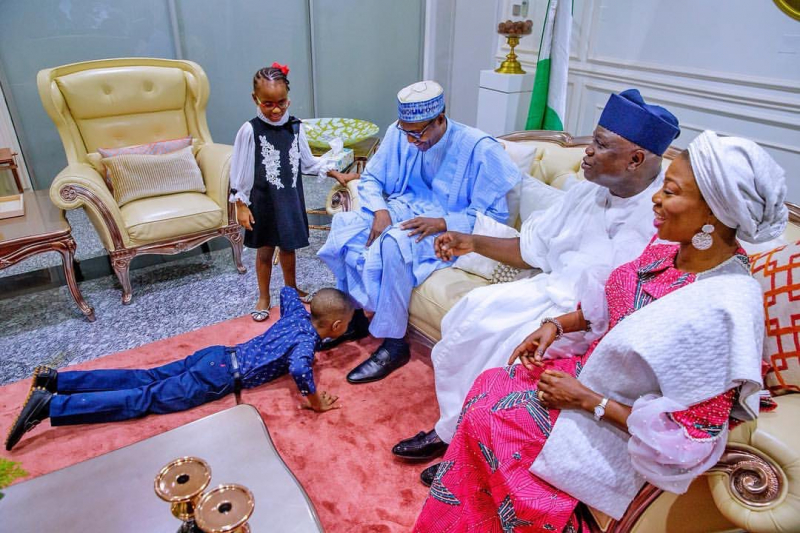
miningreview.com 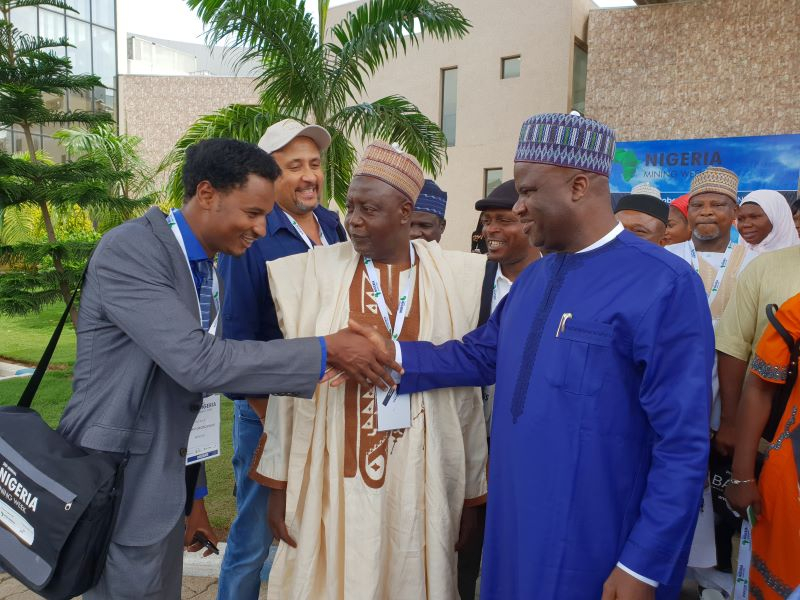
miningreview.com -
Nigeria has several textile industries that produce clothing for the Nigerian people. Fashion is varied and influenced by ethnic groups, culture, and religion. Styles have recently evolved to more contemporary designs. Traditionally, cultures such as the Yoruba wore clothing such as gele (a cloth wrapped around a woman's head), afbada (a formal robe), and other forms of attire. Unlike other cultures, where clothing has always been a symbol of status, other cultures, such as the Igbo, used to wear clothes only for modesty in the past.
Nigerian clothing is distinctive and appealing. Lace, jacquard, adire, and ankara are just a few of the materials used to make dresses in Nigeria. Nigerian women's clothing includes buba, kaba, iro, gele, and iborun or ipele, while Nigerian men's clothing includes buba, fila, sokoto, abeti-aja, and agbada. People wear western clothing in addition to traditional clothing. Nigeria's ethnic diversity is well reflected in its clothing culture. Discover the different types of Nigerian clothing for men and women. Lace, jacquard, adire, and ankara are important materials for Nigerian clothing. People like tie and die materials as well.
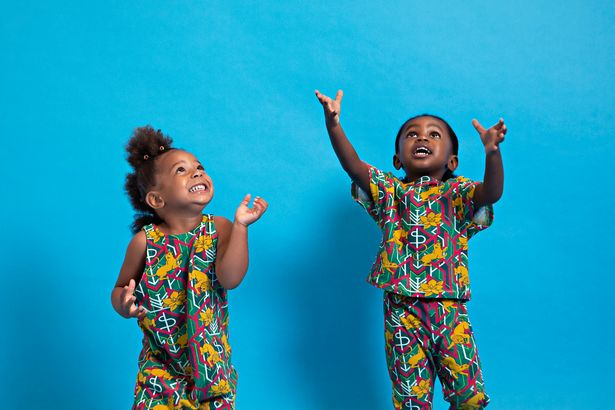
mylondon.news 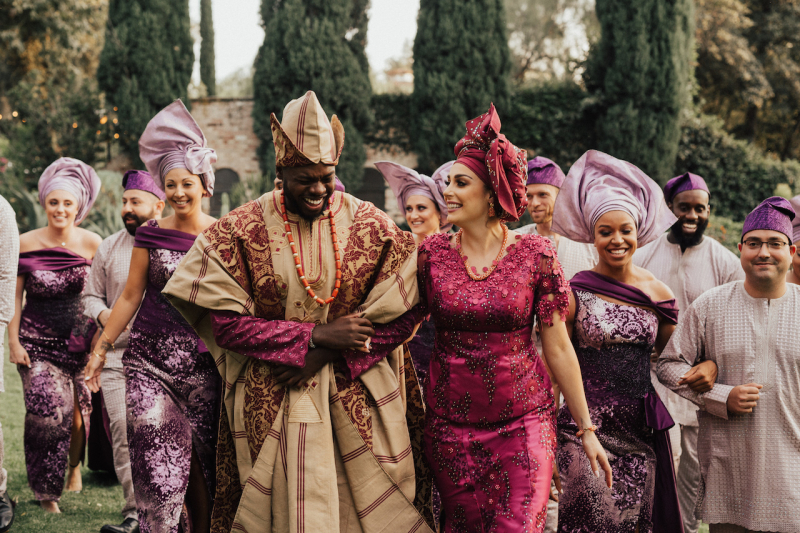
nytimes.com -
Wrestling was a vehicle for expressing individual and social identity, status, and prestige in precolonial times. Other sports were introduced to Nigeria by British colonizers in the early twentieth century, including football (soccer), boxing, athletics (track and field), and tennis, which were spread through mission schools, railroad companies, the armed forces, and the colonial bureaucracy. Following the country's independence in 1960, the Nigerian government used domestic and international sporting events to instill a sense of national identity among its various ethnic groups and gain global recognition. In Nigeria, football is a national obsession.
The Super Eagles, led by players such as Nwanko Kanu and Jay-Jay Okocha, reached the World Cup finals in 1994, 1998, and 2002, and won the gold medal at the 1996 Olympics. Similarly, the national women's team has reached the Women's World Cup finals on numerous occasions. Hakeem Olajuwon, who became a superstar in the National Basketball Association in the United States, mirrored the acclaim won by many Nigerian footballers playing abroad, sparking widespread interest in the sport in Nigeria by the end of the twentieth century. Nigerian boxers have also achieved international success, most notably Richard Ihetu, the middleweight and light-heavyweight world champion who fought under the alias "Dick Tiger." Nigerians have excelled in boxing and athletics in the Olympic Games, to which the country sent its first team in 1952, in Helsinki.
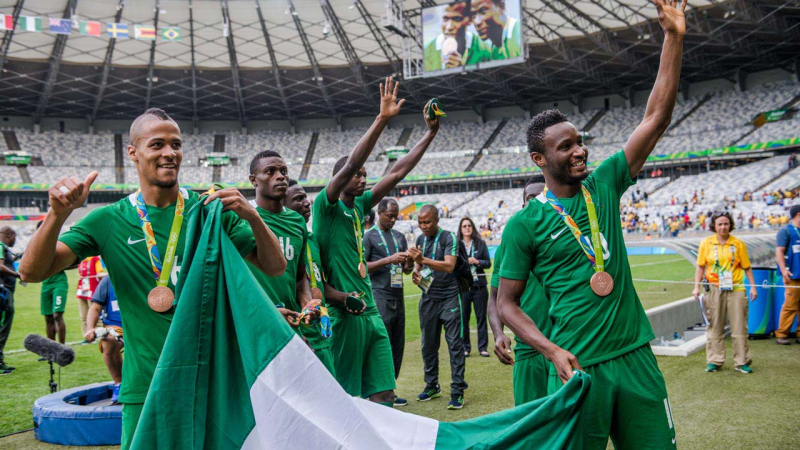
guardian.ng 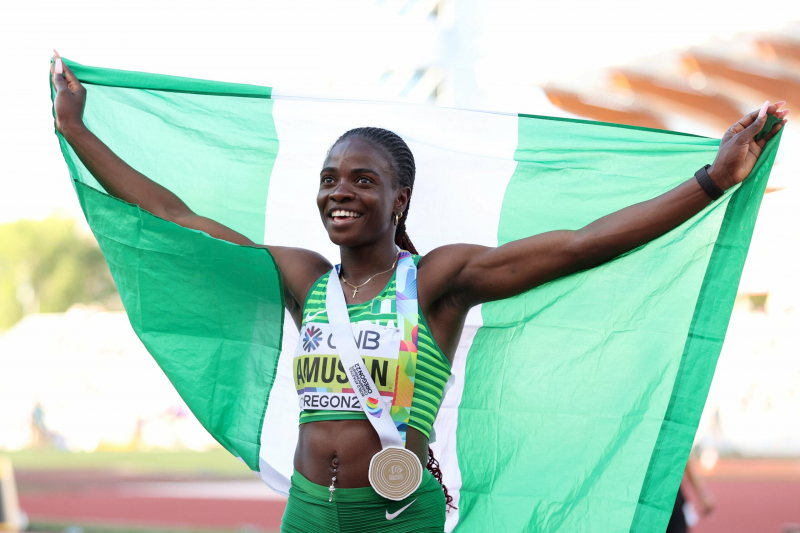
premiumtimesng.com -
It is estimated that half of Nigerians are Muslims, 40% are Christians, and the remaining 10% practice various indigenous religions. While Muslims can be found throughout Nigeria, their strongestholds are among the Hausa and Yoruba. Islam in Nigeria is similar to Islam worldwide. It is based on the Prophet Muhammad's teachings as outlined in the Qur'an.
Christianity is most prevalent in Nigeria's south. The vast majority of Igbo and many Yorubas are Christians. The most common Christian denominations in Nigeria are Anglican, Presbyterian, American Southern Baptist, and Methodist. There are also significant numbers of Seventh-Day Adventists and Jehovah's Witnesses.
Several breakaway African-Christian churches arose as a result of disagreements with the way some missionaries administered the churches during colonial times. The majority of these adhere to Western church doctrines while incorporating African music and tradition into their Masses. Some Christians have even relaxed their restrictions on polygamy.
Relations between Christians and Muslims are tense in many areas. Since late 1999, numerous clashes between the two have led to thousands of deaths. The northern city of Kaduna has been the flash point for many of these riots, as local leaders discussed whether to institute Shari'a law in the region. Demonstrations by Christians against the idea soon led to violent confrontations with Muslims. The debate over Shari'a law and the violence accompanying it continue in many of the northern states.
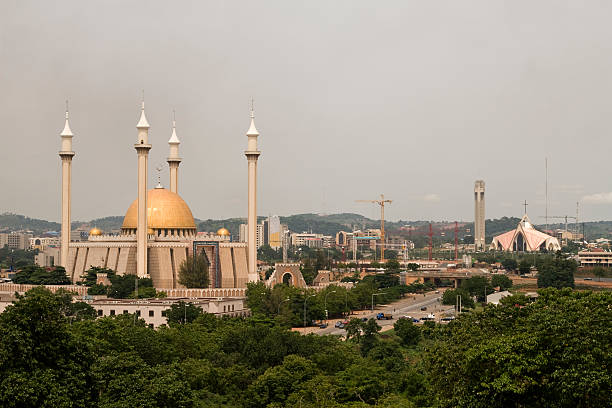
istockphoto.com 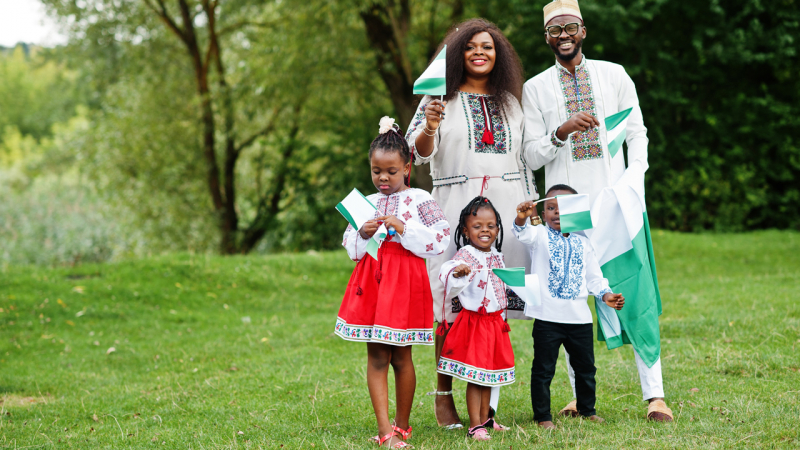
istockphoto.com -
In Nigeria today, there are three types of marriage: religious marriage, civil marriage, and traditional marriage. A Nigerian couple may choose to participate in one or more of these marriages. Religious marriages, usually Christian or Muslim, are held in a church or a mosque and follow the norms of the respective religious teachings. Christian men are only permitted to have one wife, whereas Muslim men are permitted to have up to four wives. Civil weddings are held in a government registry office. A civil wedding allows men to have only one wife, regardless of religion. Traditional marriages are usually held at the wife's home and follow the customs of the ethnic group involved. Most ethnic groups traditionally allow more than one wife.
While Western courtship and marriage are not unheard of, the power of traditional values and the family's strong influence mean that traditional ways are usually followed, even in cities and among the elite. According to old customs, women had little say in who they married, though the number of arranged marriages is decreasing. Women marrying in their teens, often to much older men, is also not uncommon. When there are already one or more wives, it is the responsibility of the first wife to look after the new wife and help her integrate into the family.
Many ethnic groups in Nigeria practice offering a bride price for an intended wife. Unlike a dowry, which is something of material value that the woman brings to the marriage, a bride price is some form of compensation that the husband must pay before he can marry a wife. A bride price can be money, cattle, wine, or other valuable goods paid to the woman's family, but it can also be more subtle. Men may contribute money to an intended wife's education or assist her in establishing a small-scale business or agricultural endeavor. This form of bride price is often incorporated as part of the wooing process. While women who leave their husbands will be welcomed back into their families, they often need a justification for breaking the marriage. If the husband is seen as having treated his wife well, he can expect to have the bride price repaid.
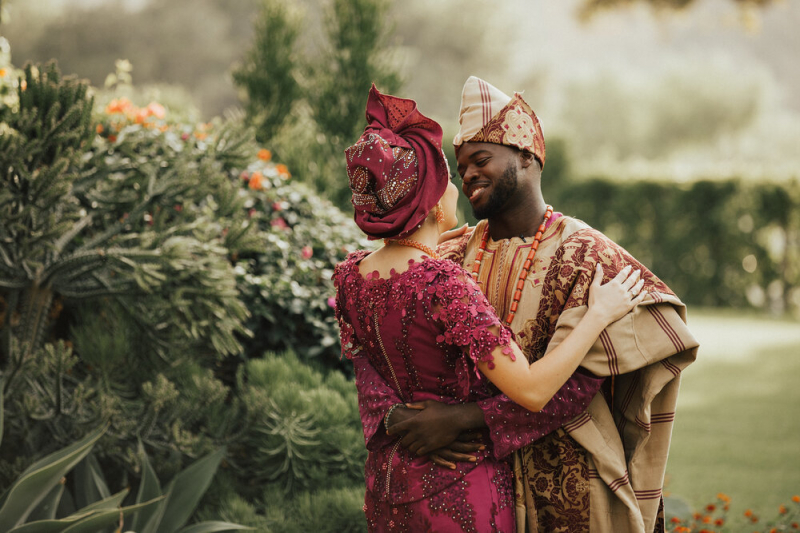
nytimes.com 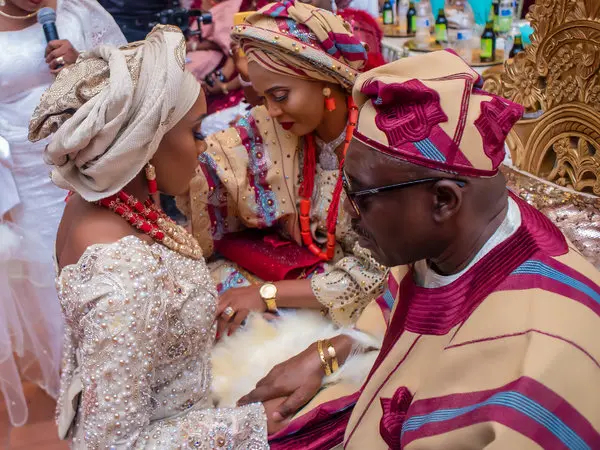
nytimes.com -
Literature: Nigeria has a long and illustrious literary history. Nigerians have always been storytellers. Much of Nigeria's precolonial history is the result of stories passed down from generation to generation. Nigerian storytellers quickly began sharing their talents with a global audience after colonization and the introduction of reading, writing, and the English language. Wole Soyinka, who won the Nobel Prize in literature in 1986, is perhaps Nigeria's most famous writer. A Dance of the Forests, The Swamp Dwellers, and The Lion and the Jewel are among his most famous works.
Graphic Arts: Nigeria is well-known for its sculpture. Bronzework from the ancient cities of Ife and Benin can be found in museums worldwide. These areas in southern Nigeria continue to produce a significant amount of bronze castings. Popular items include woodcarvings and terra-cotta sculptures. Nigerians are highly skilled dyers, weavers, and tailors. They produce enormous amounts of beautiful, rich, and colorful textiles. However, the vast majority of these are sold for everyday wear rather than as works of art.
Performance Arts: Dance and music are two of Nigeria's most vibrant forms of art. Nigerian music is based on strong rhythms provided by a plethora of drums and percussion instruments. Highlife music is heavily influenced by Western culture. It sounds like an Africanized version of big band or ballroom music from the United States. Afro-beat is a music genre that combines African rhythms and melodies with jazz and soul. The name palm wine music comes from the palm wine saloons where it is traditionally heard. Its frantic rhythms reflect the boisterous nature of many palm wine bars. Perhaps Nigeria's most popular form of music is juju, which uses traditional drums and percussion instruments to back up vocals and complicated guitar work. Popular juju artists include King Sunny Ade, Ebenezer Obey, and Shina Peters.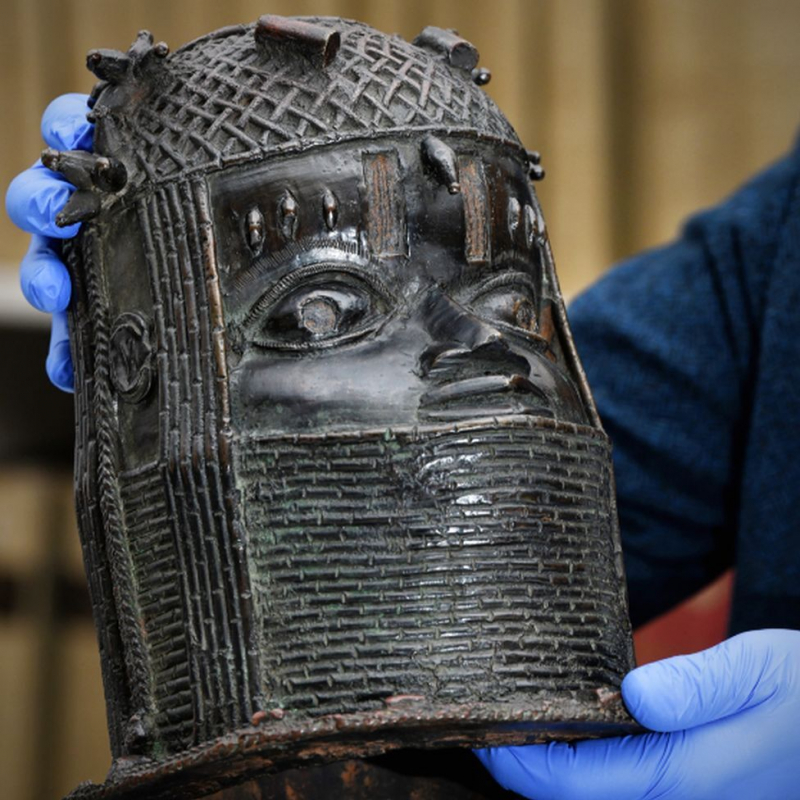
punchng.com 10 Most Incredible African Traditional Dance Moves




























